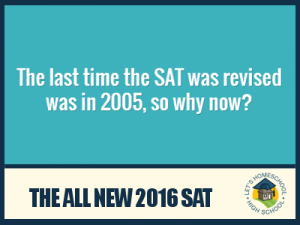Should Your Student Apply to an Honors College?
 I asked a college sophomore in the Honors College at Duquesne University, and her response was: “Absolutely! You get priority scheduling, better class selection, and usually nicer dorms.”
I asked a college sophomore in the Honors College at Duquesne University, and her response was: “Absolutely! You get priority scheduling, better class selection, and usually nicer dorms.”
So if your teen is a high achiever and is looking at schools with an Honors College, he or she should definitely consider applying. Academic benefits can include smaller class sizes with more meaningful discussions and interaction with their professors. Access to professors is limited in a larger lecture setting and office hours may be inconvenient. Other benefits can be priority class registration and nicer dorms or a dedicated space where honors students can study and hang out. Sometimes, honors students take a series of classes together, so faces become familiar more quickly in the smaller-group setting. Honors programs can have professional benefits as well. If your teen plans to pursue a higher degree, masters programs will look favorably on an honors program’s rigorous course of study. Similarly, potential employers recruit graduates with have critical thinking skills.
Now let’s consider the possible challenges of an Honors College program…
First and foremost, there’s no getting around that fact that an honors program is extra work. The classes are smaller and require more participation, which makes it more difficult to “coast.” If your teen hates public speaking, he or she might prefer to be in a large lecture hall where there’s less chance of being singled out. Often, there’s a required GPA to maintain Honors College standing or housing, and some schools may ask students to attend a certain number of Honors College events.
Honors College isn’t for everyone, but for motivated students who are accustomed to a challenging workload and high achievement, the benefits are undeniable. At Test Preps, we excel at helping students achieve their goals. Contact us today if you’d like to learn how your teen can improve their ACT/SAT score for any program!
Tags: ACT, college, college admissions, Honors College, Test Preps
Posted in
College, College admissions |
No Comments »




 eal of the day, but research has shown this to be true many times over. The statistics are eye opening. Students who eat breakfast regularly perform better academically, have increased attendance and less often visit the nurse’s office. Students who eat breakfast regularly also, on average, score more than 17% higher on math tests and are 20% more likely to graduate.
eal of the day, but research has shown this to be true many times over. The statistics are eye opening. Students who eat breakfast regularly perform better academically, have increased attendance and less often visit the nurse’s office. Students who eat breakfast regularly also, on average, score more than 17% higher on math tests and are 20% more likely to graduate. 

 of the SAT, College Board is trying to promote excellent classroom work and accelerate students who are behind. To this end, the company has aligned the new SAT with with the Common Core curriculum. In fact, the new president of College Board, David Coleman, was a key player in creating the Common Core standards. More concretely, College Board will support best practice in classrooms by working with teachers and college faculty to design course frameworks and modules for use in grades 6–12.
of the SAT, College Board is trying to promote excellent classroom work and accelerate students who are behind. To this end, the company has aligned the new SAT with with the Common Core curriculum. In fact, the new president of College Board, David Coleman, was a key player in creating the Common Core standards. More concretely, College Board will support best practice in classrooms by working with teachers and college faculty to design course frameworks and modules for use in grades 6–12. 